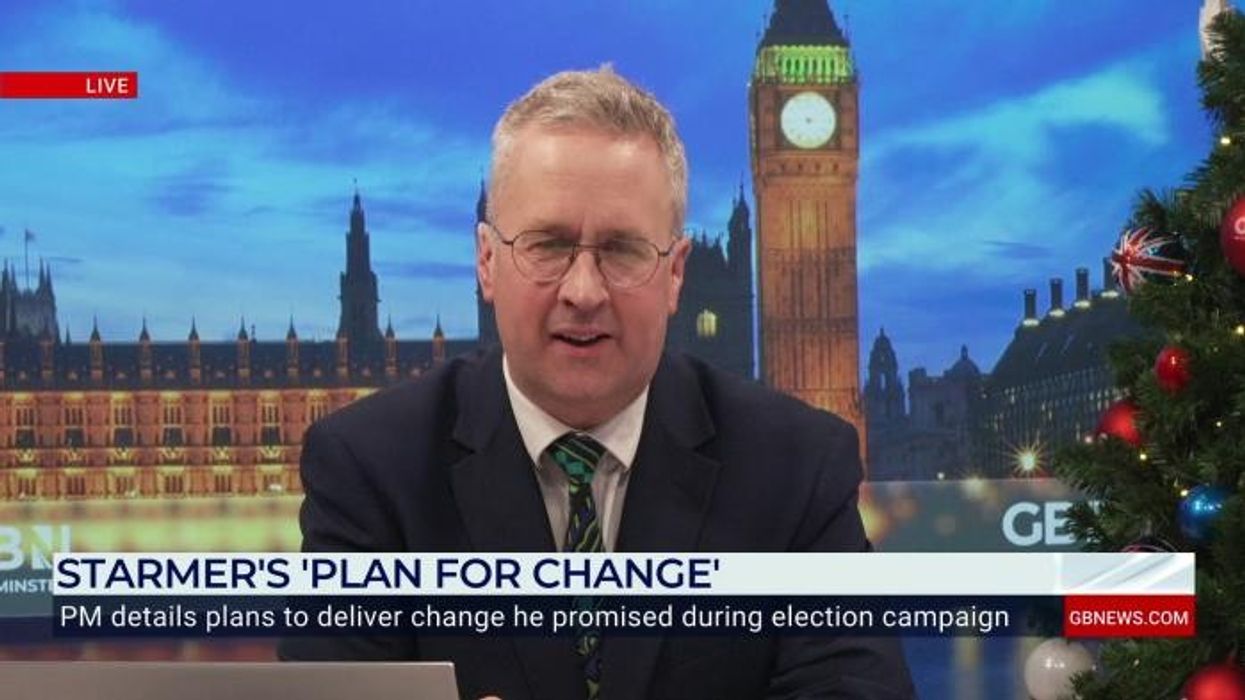Taxpayers to foot £43bn worth of council debt under Rayner's 'devolution revolution'
As part of the new rules, a new mayor for Greater Lincolnshire, as well as Hull and East Yorkshire, will be elected next year
Don't Miss
Most Read
Taxpayers are set to shoulder £43billion worth of council debt in Labour’s drive to establish “super-councils” through local government reforms.
In Angela Rayner’s overhaul of local councils, the Government is keen to abolish a number of smaller authorities in the Deputy Prime Minister’s “devolution revolution”.
However, as many of these councils are facing serious amounts of debt, a senior Whitehall figure has said that this burden would be adopted by the new authorities, rather than central Government.
Currently, England’s county and district councils are believed to be in £24billion of debt, while smaller councils are said to add to the burden with a further £19billion worth of debt.

Currently, England’s county and district councils are believed to be in £24billion of debt, while smaller councils are said to add to the burden with a further £19billion worth of debt
|PA
Rayner’s new rules will also establish more directly elected mayors, who can impose a “mayoral precept” in addition to council tax, across swathes of England.
Labour has insisted that the plans do not constitute as super-councils and will enhance democracy at a local level as regional leaders take on more responsibilities.
However, fears of decreased democracy have been stirred up by the policy’s White Paper, which has outlined that one of the law’s objectives is to “reduce the number of politicians”.
So far, Rayner has signed off on the creation of the mayors in Greater Lincolnshire and the combined authority of Hull and East Yorkshire.
LATEST DEVELOPMENTS:
Both will be elected at next year’s local elections.
Other areas that are believed to be in line to receive a directly elected mayor includes Hampshire, Sussex, Kent, Essex and Cheshire.
As a result, the Government hopes to do away with the current hybrid system which means that areas have county and district councils which have separate functions, rather than one unitary body.
Currently, combined authority mayors levy a precept in addition to council taxes across Manchester, Liverpool and Cambridgeshire.

As part of the new rules, a new mayor for Greater Lincolnshire, as well as Hull and East Yorkshire, will be elected next year
|PA
However, the Conservatives have slammed the Government’s “devolution revolution”, arguing that the policy has sent a “very clear message” to authorities.
The Conservatives have said that “that this Government feels that the men from Whitehall know best what their place needs, not bottom-up local leadership, but top-down templates for local government”.
Shadow local government minister David Simmonds said in the House of Commons: “Instead of genuine devolution, what this White Paper sets out is a reductive approach.
“It's a mishmash of new tiers, new taxes, taking decision-making further distance away from residents, and if the experience of London is anything to go by, costing them a fortune at the same time.”
An MHCLG spokesperson said: “Our ambitious devolution plans will put power in the right places so that local leaders are fully equipped to drive growth which will put more money into people’s pockets, and save taxpayers’ money which can be reinvested into vital public services.
“We will work closely with local leaders to explore what support they might need to develop robust proposals and implement new structures.”











